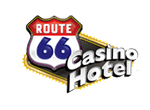Signs of Problem Gambling
Those individuals who are at risk to develop a problem with gambling or other substances or behaviors can potentially affect their families, friends, and loved ones. Like other addictions, the compulsion to gamble can seize the gambler’s life, causing devastating emotional and financial results. Often, the family is also emotionally injured and financially damaged by a gambling addiction. The tribal casinos that make up the Responsible Gaming Association of New Mexico voluntarily put their efforts into this combined campaign, for anyone who may develop an addiction to gambling.
What Is Problem Gambling?
“Problem gambling” implies that there are problems related to gambling, such as too much time spent gambling or too much money spent on the activity.
Some problem gamblers get over their problem in time.
Some problem gamblers go on to develop the addiction – “compulsive gambling.”
Compulsive or “pathological” gambling means an addictive disorder with gambling exists and that the individual cannot stop gambling.
Untreated, compulsive gambling usually gets worse over time.
Someone who is a problem gambler may have other addictive behaviors such as drinking, drugs or smoking.
The Hidden Addiction
Most Americans are social gamblers who can enjoy the fun of gambling without harmful effects. As an association, we promote “knowing when to stop” so that gambling is considered an entertainment option.
Compulsive gambling is not just a “bad habit.” It is an emotional illness recognized by the American Psychiatric Association. Just as some people can become addicted to alcohol or drugs, compulsive gamblers become obsessed with an uncontrollable urge to gamble.
“Action” is what compulsive gambling is all about. Being in ACTION (gambling) is like taking a tranquilizer or stimulant to put the gambler in a desired mood. The effect, however, wears off when the gambler must face the reality of lost money and time.
As the disorder progressively increases, the compulsive gambler finds he/she must seek relief through even more gambling. The result is a progressive financial and emotional deterioration which can sometimes destroy both the gambler and his or her family.
Numerous prevalence surveys indicate that compulsive gambling affects one to three percent of those adults who gamble. Compulsive gambling can affect men and women of any age, race or religion, regardless of their financial or social status.
Keep gambling what it should be, entertainment. Know how to set your limits, and most importantly, know when to stop. If you feel you have a problem with gambling, or know someone who does, call (888) 696-2440 for free, confidential gambling addiction help.
Signs and Symptoms of Compulsive Gambling
Compulsive gambling is a term that indicates that the person’s gambling is compromising or damaging their personal, family, or vocational pursuits. Problem gambling has a broad severity spectrum and its cause appears to be related to several factors.
Below are some of the more common signs and symptoms of compulsive gambling:
- Gambling to calm nerves, forget worries, or reduce depression
- Losing interest in other things
- Talking about, thinking about, or planning to gamble and not doing other activities
- Lying about gambling habits
- Gambling alone or gambling more often
- Getting into arguments about gambling
- Going without basic needs in order to gamble
- Needing to gamble more and more money in order to get the desired effect
- Experiencing health problems related to gambling like lethargy, headaches, anxiety, and depression
- Having financial problems caused by gambling
Watch our 30-minute documentary on RGANM and the compulsive gambling resources that are available.

Gambling Help Line
(888) 696-2440
Available 24/7

Two Important Questions
-
- Do you ever lie about gambling?
- Have you ever borrowed money to finance your gambling?
If you answered yes to either question, learn about the signs of problem gambling and our free resources.

There Is Hope
“The Responsible Gaming Association of New Mexico gave me serenity, peace, freedom, joy…gave me life basically. That’s what I have today. I can live free. I’m free.”
~ Geri Drennan

Responsible Gambling Tips
- Gambling is paid entertainment that you are paying for, so treat the money you lose as the cost of your entertainment
- Don’t think of gambling as a way to make money
- Set a money limit
- Set a time limit & take regular breaks
- Only bring the cash you are willing to lose and leave ATM and credit cards at home
- Don’t leave credit cards or ATM cards in the car
- Expect to lose
- Don’t gamble when you are depressed or upset
- Balance gambling with other activities
- Gambling and alcohol are proven to not be a good combination
- Don’t chase losses
- Avoid becoming too superstitious
- Never fall for the gambler’s fallacy
- Learn the rules and odds of the games
- Educate yourself about problem gambling
- Don’t play with money you don’t have
- Don’t use your credit card to gamble
- Don’t increase your betting to make up for money you lost
- Don’t use gambling as a way to cope with stress, loneliness, or depression
- Never gamble with important money such as rent money
- If you are thinking about gambling all day long, get help
- If you are lying to others about your gambling, get help
- Never borrow money from others just to gamble
- Do not gamble to escape your problems or to ignore your responsibilities
- Gambling to pay off a gambling debt does not work
- It’s a sign of a problem if you are quitting your job or favorite hobbies to gamble
Treatment Providers: Join our E-mail List to Receive Updates
Counselors, join our mailing list to receive the latest news from our Problem Gambling Conferences
By submitting this form, you are consenting to receive marketing emails from: Responsible Gaming Association of New Mexico. You can revoke your consent to receive emails at any time by using the SafeUnsubscribe® link, found at the bottom of every email. Emails are serviced by Constant Contact

















